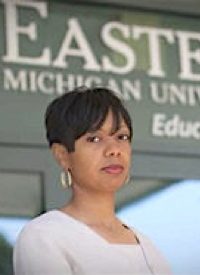
The U.S. Court of Appeals for the 6th District has ruled that Eastern Michigan University (EMU) was out of line in expelling a graduate counseling student because of her unwillingness to validate homosexuality in her treatment of individuals struggling with same-sex attraction.
Julea Ward (left), a student in the university’s graduate level counseling program, had only four courses remaining to earn her degree when she enrolled in a one-on-one counseling practicum in 2009. As part of the practicum Ward was assigned a potential client “seeking assistance regarding a sexual relationship that was contrary to her religious convictions,” explained the Alliance Defense Fund (ADF), the legal advocacy group that represented Ward in the case. “Ward recognized the potential conscience issue with the client, and asked her supervisor how to handle the matter.”
After directing her to turn the client over to another counselor, EMU officials informed Ward that in order to stay in the counseling program she would have to undergo a “remediation” program designed to deal with her unsatisfactory viewpoint regarding homosexual relationships.
At a subsequent formal review, reported the ADF, “EMU faculty denigrated Ward’s Christian views and asked several intrusive questions about her religious beliefs. Among other things, one EMU faculty member asked Ward whether she viewed her ‘brand’ of Christianity as superior to that of other Christians, and another took Ward on what the faculty member called a ‘theological bout’ designed to show her the error of her religious thinking.” Following the meeting Ward was summarily dismissed from the counseling program.
In a strongly worded opinion in the case, the 6th district appeals court reversed a lower court ruling in favor of the university and sent the case back for trial, noting that “a reasonable jury could conclude that Ward’s professors ejected her from the counseling program because of hostility toward her speech and faith….”
Wrote the court in its opinion: “A university cannot compel a student to alter or violate her belief systems based on a phantom policy as the price for obtaining a degree…. Why treat Ward differently? That her conflict arose from religious convictions is not a good answer; that her conflict arose from religious convictions for which the department at times showed little tolerance is a worse answer.”
The court noted that Ward “was willing to work with all clients and to respect the school’s affirmation directives in doing so. That is why she asked to refer gay and lesbian clients (and some heterosexual clients) if the conversation required her to affirm their sexual practices. What more could the rule require?”
The court pointed out that EMU was unable to “point to any written policy that barred Ward from requesting this referral,” and, in fact, several textbooks used in her course work “say that sound counseling practices permit values-based referrals.”
The judges challenged the school on whether its intolerance might impact other counseling students seeking to refer clients over conflicting beliefs. Wrote the court: “Surely, for example, the ban on discrimination against clients based on their religion (1) does not require a Muslim counselor to tell a Jewish client that his religious beliefs are correct if the conversation takes a turn in that direction and (2) does not require an atheist counselor to tell a person of faith that there is a God if the client is wrestling with faith-based issues. Tolerance is a two-way street. Otherwise, the rule mandates orthodoxy, not anti-discrimination.”
Walter Kraft, a spokesman for EMU, insisted that the case “has never been about religion or religious discrimination. It is not about homosexuality or sexual orientation. This case is about what is in the best interest of a person who is in need of counseling.” According to the Christian Post, Kraft said that the school’s actions were based on the ethics codes of two counseling associations, which, he said, “require that counselors are not to allow their personal values to intrude into their professional work.”
But Eric Rassbach of the Becket Fund, which submitted a friend-of-the-court brief on behalf of Ward, noted that it is common for counselors to refer clients to other professionals for any number of reasons. “No individual should be forced out of their profession solely because of her religious beliefs,” he said. “Counselors refer clients elsewhere all the time for personal, financial, or ethical reasons, and referrals for religious reasons should be treated no differently.”
ADF attorney Jeremy Tedesco, who argued the case before the court last October, agreed, emphasizing that public universities simply cannot “force students to violate their religious beliefs to get a degree. The court rightly understood this and ruled appropriately.”


